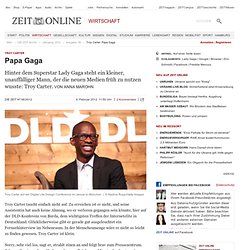

iMedia Connection: Interactive Marketing News, Features, Podcasts and Video - iMediaConnection.com. Ford's "Escape Routes" on NBC Brings Social TV to Branded Entertainment. Because it owned the house, it was predictable that Ford's new reality-TV show on NBC, Escape Routes, would find every angle to tout the automaker's new 2013 Ford Escape — the namesake inspiration for the show. And it did. But what viewers of the first installment of the show might not have expected was to see a number of other blue-chip brands — including McDonald's, J.C. Penney, several Procter & Gamble marques, even Ford rival Volkswagen — go along for the ride.
The six-week Escape Routes series, which debuted on March 31st, is the latest way for Ford to push the envelope with new-era marketing formats, where it has demonstrated industry leadership. And while the first installment was hardly Emmy-worthy appointment viewing, Ford executives tell brandchannel they're pleased with the social TV meets branded entertainment experiment. "We are pumped," Crystal Worthem, Ford's brand content and alliances manager, told brandchannel. Its Saturday-evening at 8 p.m. Digital Entertainment Professionals (TV, Music, Games, Apps, Brand Content) Gruppen-News. Troy Carter: Papa Gaga. Hinter dem Superstar Lady Gaga steht ein kleiner, unauffälliger Mann, der die neuen Medien früh zu nutzen wusste: Troy Carter.

Speichern Drucken Twitter Facebook Google + Troy Carter auf der Digital Life Design Conference im Januar in München | © Nadine Rupp/Getty Images Troy Carter taucht einfach nicht auf. Sorry, sehr viel los, sagt er, strahlt einen an und folgt brav zum Pressezentrum. Anzeige Der Mann, das fällt sofort auf, ist so unauffällig, als sei er der Gegenentwurf zu seinem schrillen, lauten, bunten Star. 90 Millionen Dollar Umsatz soll sie im vergangenen Jahr eingespielt haben, schätzte Forbes, mindestens doppelt so viel wie jede andere Sängerin. Bei ihm klingt es eher so: Er hat einen Weltstar gefunden. »Ich glaube nicht, dass man jemanden zum Star machen kann«, sagt der 39-Jährige. »Einen Superstar erkennt man, wenn er den Raum betritt Bodenständig in Netzstrümpfen. Flurry: Time Spent On Mobile Apps Has Surpassed Web Browsing.
Mobile app analytics firm Flurry is releasing a new report today comparing the daily engagement of smartphone users on mobile apps vs. web browsing on the PC.

For web analytics, Flurry used data from comScore and Alexa and for mobile application usage, the startup used its own analytics, which now counts 500 million aggregated, anonymous use sessions per day across more than 85,000 applications. Flurry says that this accounts for approximately one third of all mobile application activity. While this is an imperfect methodology, it does point to the rise of mobile apps in our lives. Flurry says that daily time spent in mobile apps has now surpassed web consumption.
The average user now spends 9% more time using mobile apps than the Internet. This compares to 66 minutes on mobile apps daily in December of 2010, and 70 minutes spent daily on the web. Flurry also took a deep dive into where mobile app users are spending their time. ComScore Says You Don't Got Mail: Web Email Usage Declines, 59% Among Teens! In introducing his messaging platform last November Facebook CEO Mark Zuckerberg said one of the primary motivations behind Messages product strategy was that teenagers have given up on email, “High school kids don’t use email, they use SMS a lot.

People want lighter weight things like SMS and IM to message each other.” A comScore report on 2010 digital trends reinforces at least part of Zuckerberg’s claim. It’s inevitable: Innovative social messaging platforms like Facebook and Twitter as well mobile communications continue to dominate our online time, and web email begins its steady decline. Total web email usage was down 8% in the past year (YOY), with a whopping 59% decline in use among people between the ages of 12-17. Cue Matt Drudge -style alarm. Social media around the world 2011.